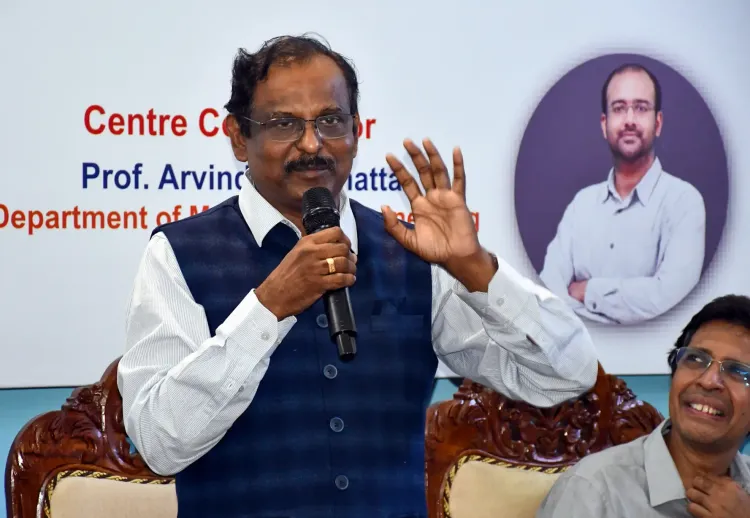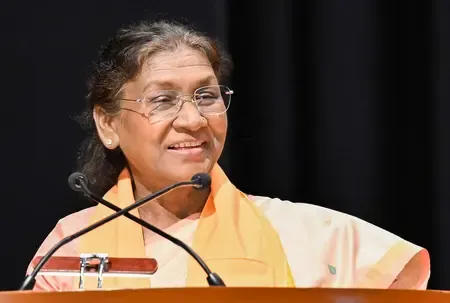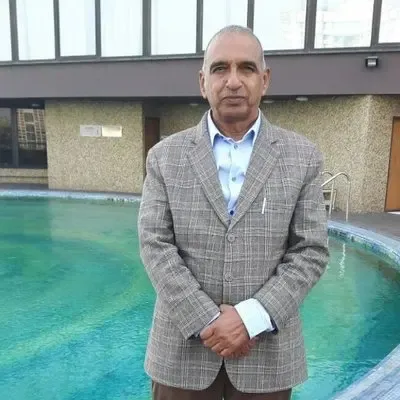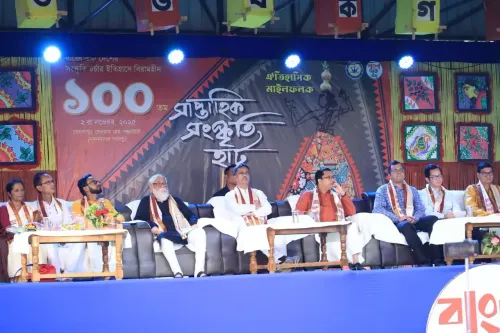India Joins Elite Group of 6 Nations with Indigenous Cryogenic Technology; ISRO's CE20 Engine Rated for Human Use

Synopsis
Key Takeaways
- India is now one of six nations with indigenous Cryogenic technology.
- ISRO's CE20 engine is rated for human use in the Gaganyaan mission.
- India set multiple world records in Cryogenic engine development.
- VIKRAM3201 is the first 'Make-in-India' 32-bit microprocessor for space.
- ISRO aims for further advancements and recognitions.
New Delhi, March 17 (NationPress) India is now among six nations -- the United States, France, Russia, China, and Japan -- that have successfully developed Cryogenic technology on their own, announced Dr. V. Narayanan, Chairman of the Indian Space Research Organisation (ISRO), on Monday.
During the inauguration of a research facility at the Indian Institute of Technology (IIT) Madras, Narayanan revealed that ISRO's CE20 engine has been validated for human use in the Gaganyaan mission.
“Initially, Cryogenic Engine technology was not accessible to India, but now we possess three distinct engines, with the latest one rated for human missions. Only six nations globally have achieved this milestone,” Narayanan emphasized, highlighting the world records set through this advanced technology.
“We have accomplished three world records in this field -- achieving success on our third attempt; from engine testing to actual flight, we completed the process in 28 months, whereas other countries took between 42 months to 18 years. We also managed to conduct our test in just 34 days, which no other nation has matched, as they typically required about 5 to 6 months,” the ISRO chief stated.
Narayanan further encouraged IIT Madras to “aspire for a few Nobel Prizes.”
In addition, ISRO's Vikram Sarabhai Space Centre (VSSC) has partnered with SCL, Chandigarh to develop 32-bit microprocessors -- VIKRAM3201 and KALPANA3201 -- intended for space applications.
“VIKRAM3201 is the first fully ‘Make-in-India’ 32-bit microprocessor that has been certified for use in the extreme conditions of launch vehicles,” ISRO confirmed.
This processor was developed at the 180nm CMOS semiconductor fab of SCL. It is an enhanced version of the homegrown 16-bit VIKRAM1601 microprocessor, which has been operational in ISRO's launch vehicle avionics since 2009.
KALPANA3201 is a 32-bit SPARC V8 RISC microprocessor designed based on the IEEE 1754 Instruction Set Architecture.
“This microprocessor is compatible with open-source software tools, along with our in-house developed simulator and IDE, and has been tested with flight software,” ISRO stated.









